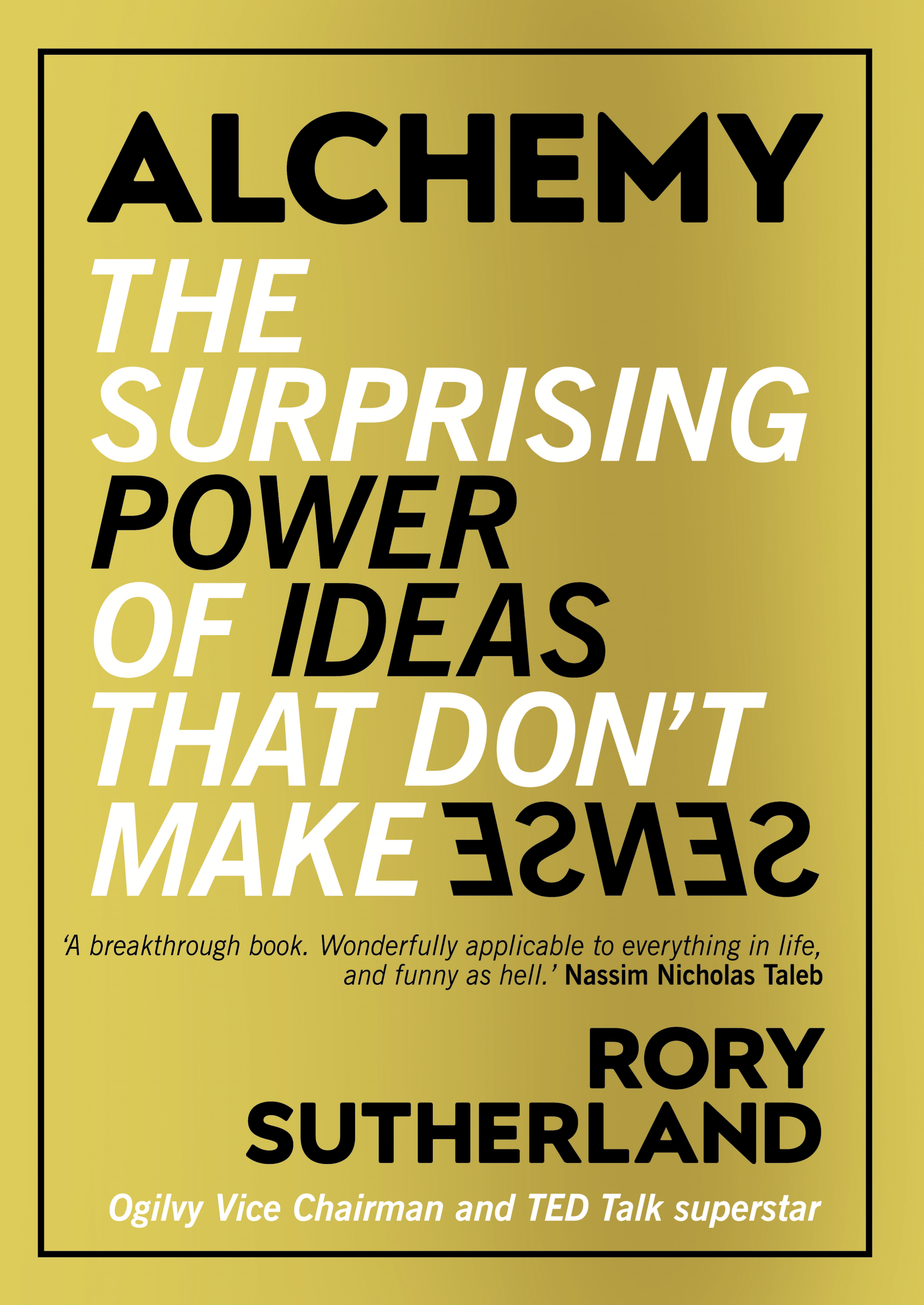The Marketing Society has introduced a new series of Book Circles. These Member-Only intimate events bring an inspiring author to provide a ‘starter for ten’ introduction sharing insights from their book, which is then followed by small group conversations exploring what the implications of the book are for marketers.
Nick Liddell, from Baron Sauvage, attended the inaugural book circle which discussed Rory Sutherland’s bestseller 'Alchemy: The Surprising Power of Ideas That Don’t Make Sense.' This is his review.
Rory Sutherland has read Byron Sharp.
Given his role as Vice-Chair of Ogilvy, this admission shouldn’t come as a surprise. The wild success of How Brands Grow has made Professor Sharp’s books and articles required reading for anybody who wants to be taken seriously in marketing. What’s surprising, though, is that Rory Sutherland chose to point this out in his opening statement to the Marketing Society’s inaugural Book Circle. Fans of Byron Sharp will be familiar with a central tenet of his work: that success lies in aiming for the broadest possible audience.
And Rory Sutherland has very consciously aimed in the opposite direction.
He explained that his book, Alchemy, has been written for an extremely rare and seemingly endangered species: what Rory Sutherland calls the ‘Lonely Marketer’. According to the author, Lonely Marketers are defined by their ability to let go of three assumptions:
Firstly, that the conscious brain is in control and knows what motivates us.
We make decisions primarily through emotion and while our rational, logical mind likes to think of itself as the Oval Office, it actually functions more like the Press Office. While most of the business world venerates logic, the Lonely Marketer understands that human psychology often acts in defiance of logic.
Secondly, the Lonely Marketer appreciates that the way humans perceive the world is not remotely objective.
Even before we process the information we receive, it’s already been distorted. For reasons of survival, we are calibrated towards fear. These survival instincts have imbued in us a fear of spiders (despite the fact that there are no poisonous species of spider at large in the UK). They have also imbued in businesspeople an involuntary fear of blame and ridicule: hence why nobody ever got fired for buying IBM. The Lonely Marketer, in contrast, understands that making the best decision is not the same as making the least blameworthy decision (which is presumably why marketers were such bold and early adopters of Apple computers).
Thirdly, the Lonely Marketer accepts that business success is more probabilistic than most businesses and businesspeople like to pretend
The most successful new products (such as Red Bull and Amazon) only make sense in retrospect. They fulfilled needs that were unmet. Those needs were unmet because they were unspoken, unthought and unfelt. Lonely Marketers’ powers of anticipation are no better than anybody else’s: these unfelt and unthought and unspoken needs are things they stumble across before everyone else because they are prepared to seek out opportunities that people who are guided by logic and data and rationality won’t.
Rory Sutherland makes a powerful case for going where the data doesn't, avoiding solving for the average and embracing what’s intangible and invisible: he is in many respects the antithesis of Byron Sharp and his presentation of Alchemy seems in many ways to be the antidote to How to Grow’s immutable laws, scientific principles and data-fuelled sense of certainty.
For their part, members of the Book Circle seem to want a bit of both: the swashbuckling, cheekily contrarian creativity of Alchemy, but with a reassuring accompaniment of data and careful logic. And it turns out that’s what Rory Sutherland wants, too:
Data provides the ‘what’.
Behavioural science suggests the ‘why’.
Creativity contributes the ‘what if’.
Thus ends the Ballad of the Lonely Marketer.






